No part of this publication may be reproduced, stored in a retrieval system, or transmitted in any form or by any means, electronic, mechanical, or otherwise, without the written permission of the publisher.
Blau, Herbert.
Reality principles : from the absurd to the virtual / Herbert Blau.
p. cm.
Includes index.
ISBN 978-0-472-07151-7 (cloth : acid-free paper) ISBN 978-0-472-05151-9 (pbk. : acid-free paper)
1. TheaterPhilosophy. I. Title.
Introduction
ALL OF THESE ESSAYS, with one exception, were written just before or after the millennium, and while they reflect upon each other, that earlier essay does, not only across the years, but from so long ago that I might have forgotten what it was about. It would seem to have been an irrelevance until, working on an autobiography, I happened to read it again, while remembering the dissident 1960s, spilling into the 70s, when classrooms were invaded, students were lecturing teachers, and relevance was a watchword. That my view of it all then, as a rather chastening lesson, is still germane today was confirmed by my wife Kathleen Woodward, when she was recently asked to contribute to a special issue of Daedalus, where my essay was published over forty years ago, after a rather high-powered conference, sponsored by the American Academy of Arts and Science, The Future of the Humanities. That the future is still in questionand with the economy reeling, the job market worse than everis what Kathy was writing about. Much involved as she is with the digital humanities, a possible source of salvation, about which I know very little, she nevertheless quoted me in her essay (without saying I was her husband), because Relevance: The Shadow of a Magnitude had apparently left a reproachful shadow on what, in the academy today, remains misguided, unthought, or knowingly hypocritical. And though I had serious misgivings, in those performative days of protest, about my alignment with the students, their insurrectionary fervor, I felt we had to come to terms not only with what they were demanding, but what we had been evading, with a repressed blush, as if the books we were teaching and analyzingthe sometimes forbidding subtext or darkling indirections, myths of otherness, love's body, their implicit bearing on life, ethically, kinesthetically, never mind psychedelicallywere telling us we were lying, even as the universities were being corporatized.
What I said at the conference, and what I wrote, apparently had sufficient fervor of its own, which caused James Ackermanthe distinguished art historian, in his introduction to the essaysto describe it as an apocalyptic message that had the most radical implications of any in the issue. the more immediate site of provocation was my being at California Institute of the Arts, where as founding provost I was responsible for its conception as an implosive scene of learning, a sort of mixed-media merger of the Bauhaus and Black Mountain. With a faculty of major artists interacting with students, and the avant-garde as second naturefirst in beautiful downtown Burbank, that right-wing wasteland, scandalized by it all, then with happenings and installations all over the landscape of the San Fernando ValleyCalArts became the exemplary model of the antiacademy. And while there were wild and whirling dilemmas in its uncensored beginnings, with an escalation of controversy (up to the Disney-world board) that eventually caused me to leave, there hasn't been in my lifetime, except maybe for Black Mountain, a pedagogical dynamic even remotely like it.
How all of this came about is rehearsed in a miniature autobiography, called an Auto Archive, which I was asked to write for Theater Journal, explaining how I came to theater, and why, since I left it, I'm doing what I'm doing now. If much of that is theoretical, it's with a haunted materiality, what I first tried to define in Take Up the Bodies: Theater at the Vanishing Pointwith the ghostings of (dis)appearance, the body's long initiation in the mystery of its vanishings,
As for mortality itself, that difficult birth astride of a grave, it's to be seen from another perspective, seemingly transcendent, in The Faith-Based Initiative of the Theater of the Absurd. A symptomatic image there, unconscionable in its excess, out the window and to the stars, is the long, long body winding, in Ionesco's Amde or How to Get Rid of It, floating amid the supernal, an ever-ballooning corpse. The essay was originally commissioned as one of two keynotes for a symposium at Stanford, a retrospective on the Absurd, from that existential period when all values were up for grabs, or seemed to have disappeared, even in celestial regions, into a black hole, where gravity is so impacted that nothing, not even light, can escape its relentless pull. How to think about that, or if value exists at all, might require complexity theory, as with the fractals of disordered systems. If that seems, systemically, cosmically, an overview of absurdist dramaturgy, the invitation came with a cautionary note to me, about how things should be said, not said, for a not entirely academic, rather hypothetical audience, the educated public. With an apology, then, in advance, and chronometrably in submission, I abided by the game of the rule, taking my cues from Ionesco, with a hyperawareness of words, wearisome, slippery words, the crimes committed in their name. That didn't prevent me, alas, with a disposition to theory and subjunctive habits of mind, from doing precisely, criminally, what I was warned against, making things difficult, in appraising the theatricality that, with every inconsequent gesture or conscious incoherence, inevitably returns to the tortuous question of whether or not there is meaning in the world, or whether we were merely born deceived into a reality that is incurable.
The other keynote was by Martin Esslin, whose book The Theater of the Absurd (published in 1961), began with an account of that now-legendary performance of Waiting for Godot at San Quentin Prison (1957), where we weren't quite sure, as the convicts assembled, the actors nervous, there'd be an educated public, or what kind of education. As for sophisticated San Francisco, when I first directed that production at The Actor's Workshop, and the now-canonical Beckett just about unknown, there was not only in the audience, but even in our companythe knowledgeable ones, of course, really experienced in theatermuch resistance to our doing that gratuitously unintelligible, pointless nondrama. I'd given various talks at Stanford over the years, but if it was a pleasure to be there with Martin, by then an old friend, it was like a pleasure postponed, amusingly ironic, to find myself this time on the stage of the Little Theater, where there'd been (in 1949) the first-ever production of any play of mine, then several others, written there at Stanford, to which I came by an almost capricious series of accidents, with a graduate fellowship in drama, as a temporary diversion from a career in chemical engineering (about which, again, see the Auto-Archive). It took some time, even while working in theater, before I really put the periodic table and fluid mechanics behind, but out of old reflex, ideas from the sciences, subatomic or astrophysical, will turn up in these essays, and another one in a moment on the selvage of the Absurdnow, but not then, linked to chaos theory.

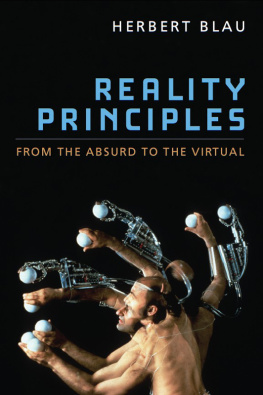
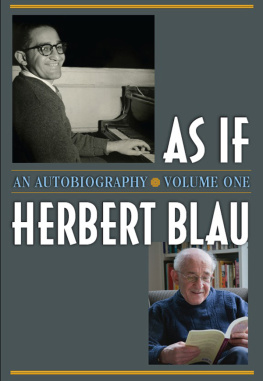
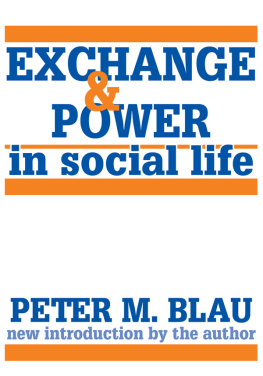

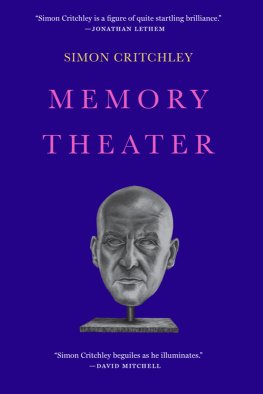
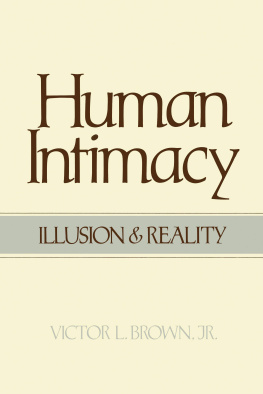
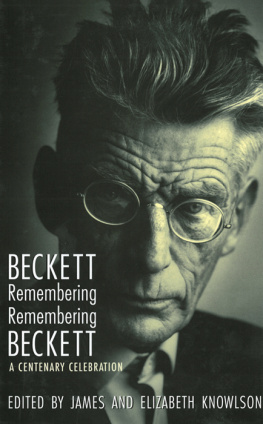
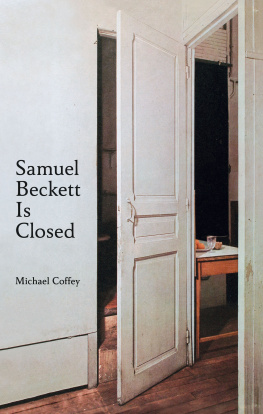
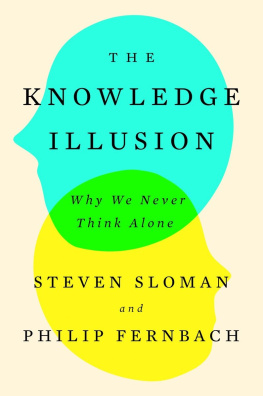
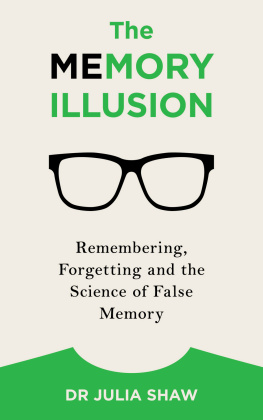

 Printed on acid-free paper
Printed on acid-free paper